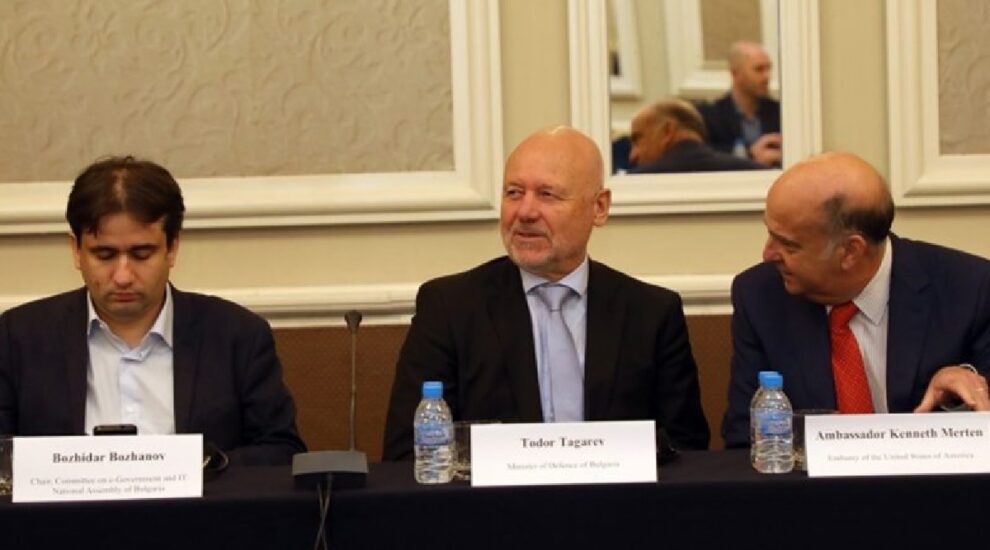The spread of disinformation and propaganda is a major element of the Kremlin’s hybrid war against countries in this region, including Bulgaria and Romania, Bulgarian Defence Minister Todor Tagarev told a conference in Sofia on November 28.
“This strategy amounts to cognitive warfare, through which Russia tries to achieve its geopolitical ambitions by manipulating public perceptions and using instilled fears,” Taragev said.
The conference “Countering hybrid threats from unconventional weapons in the Black Sea region”, was organised by the Center for the Study of Democracy and the Bureau of International Security and Nonproliferation at the US State Department.
Tagarev told the conference: “the Kremlin’s cognitive warfare is multi-pronged and aims to control our positions on political, economic, social and cultural issues and destabilise democratic systems of governance”.
“I see hybrid threats as the combined activities that take place continuously to reduce the capacity and will to resist malicious influences. Russia continues to implement an aggressive strategy to destabilise the countries of the Black Sea region,” he said.
The Kremlin’s disinformation strategy in the Black Sea region uses Russian economic influence, Tagarev said.
“Russia’s disinformation activities are multi-layered, actively relying on leaders of influence. This approach is intended to make it difficult to distinguish between governmental and non-governmental actors and, as a result, to prove the Kremlin’s involvement in specific malicious activities.”
Pointing to specific statements by Russian politicians, Tagarev said that since the beginning of the war against Ukraine, the Kremlin had several times and openly threatened to use its nuclear arsenal.
He highlighted actions such as the occupation of the Zaporozhye nuclear power plant, which is the largest in Europe, plans to deploy Russian tactical nuclear weapons in Belarus, as well as the very increase in the level of readiness of Russia’s nuclear forces, which put nuclear safety at risk and security in the Black Sea region.
“The security cooperation in the Black Sea region and the strategic partnership within the framework of the EU and Nato are crucial to harmonise efforts to deter and counter the Kremlin’s hybrid strategy and to strengthen our defence capabilities,” Tagarev said.
He emphasised the essential importance of increasing the interoperability of Nato forces and strengthening the Alliance’s positions in the Black Sea region through joint exercises, exercises and training, building intelligence, surveillance, threat identification and early warning capacity, as well as defence modernisation.
Source : Sofiaglobe










